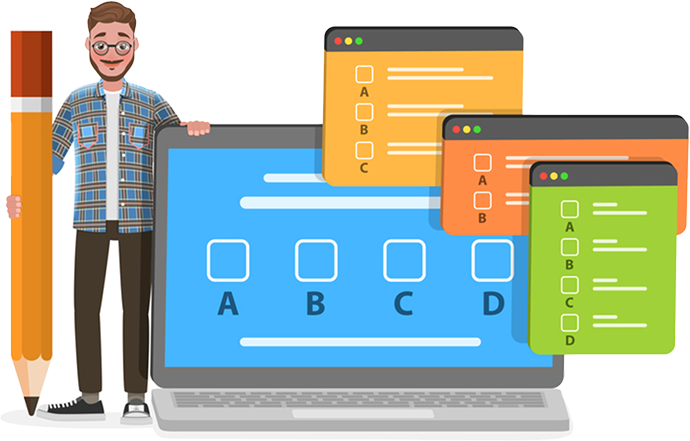
Control and Evaluations
- Basic concepts of python
- Literals: Boolean, integer, floating-point numbers, scientific notation, strings
- Operators: unary and binary, priorities and binding
- Operators:numeric operators, bitwise operators
- String operators:Boolean operators, relational operators, building complex Boolean expressions
- Assignments and shortcut operators, accuracy of floating-point numbers
- Basic input and output: input(), print(), int(), float(), str() functions
- Formatting print() output with end= and sep= arguments
- Conditional statements: if, if-else, if-elif, if-elif-else, the pass instruction
- Simple lists: constructing vectors, indexing and slicing, the len() function
- Simple strings: constructing, assigning, indexing, slicing comparing, immutability
- Building loops: while, for, range(), in, iterating through sequences
- Expanding loops: while-else, for-else, nesting loops and conditional statements,break, continue
- Mock Test
Learning Outcomes
- Understanding of Python Basics
- Real based Test Papers
- Deep Explanation of Operators and Conditional Statements
Data Aggregates
- Strings in Detail
- Lists in detail
- Lists in lists: matrices and cubes
- Tuples: indexing, slicing, building, immutability
- Tuples vs. lists: similarities and differences, lists inside, tuples and tuples inside lists
- Dictionaries: building, indexing, adding and removing keys,keys(), items() and values() methods
- Solve complex computing problems by using built-in modules, Mock Test

Learning Outcomes
- Understanding of Datatypes - Strings, List, Tuples and Dictionaries
- Real Practice Test papers
- Solve Complex Problems using Built-In Modules

Functions and Modules
- Functions and Recursion
- Parameters vs. arguments
- Converting generator objects, name scopes, name hiding, the global keyword
- Lambda functions, map(), filter(), reduce(), reversed(), sorted() functions and the sort() method
- If operator, import directives, initializing modules, writing and using modules, the __name__ variable
- pyc file creation and usage, constructing and distributing packages, packages vs. directories
Learning Outcomes
- Detail Understanding of Function and Methods
- Real Practice Test Papers
Classes, Objects, and Exceptions
- Defining your own classes, superclasses, subclasses, inheritance, creating objects, class attributes
- Class methods: defining and using, the self parameter meaning and usage
- Inheritance and overriding, finding class/object components, single inheritance vs. multiple inheritance
- Name mangling, invoking methods, passing and using the self argument/parameter
- The __init__ method, __str__ method, introspection\, examining class/object structure
- Writing and using constructors, hasattr(), type(), issubclass(), isinstance(), super()
- Using predefined exceptions , the try-except-else-finally block, the raise statement
- Input/output basics, reading and writing files, bytearray objects
- Mock Test

Learning Outcomes
- Detail Understanding of Exception Handling and File Handling
- Real Practice Test Papers
Python – PCAP
30 Sessions
- 10+ Practice Test Papers
- 5+ Mock Test
- Full-Time Access
- 1:1 Personalised and Customised Live Sessions
- Access to E-Learning Resources and Community
- 24x7 Customer Support
- Certificate on completion


